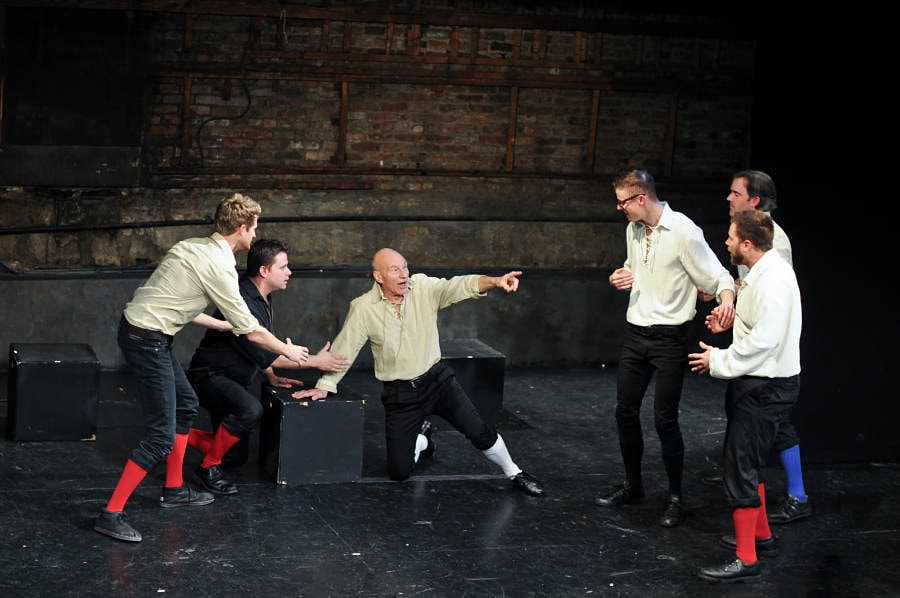My training involved very little improvisation, and when it did, I was very uncomfortable with it, feeling quite inadequate. However, when I came to work with Peter Brook at the Royal Shakespeare Company on A Midsummer Night’s Dream and Antony and Cleopatra, the atmosphere of congenial, supportive teamwork in the room, coupled with the fact that stars, understudies, everyone was equal, made all the difference. Most important was Peter’s insistence that the work was not competitive and there was no “wrong,” no “failure”—only exploration and examination. There my confidence and courage grew and the whole process became fun.
When I first saw Improvised Shakespeare Company perform at the Lyric Opera Benefit in Chicago in January 2013, I was astonished and full of wonder. How can this be improvisation? I thought. How can it be for the first time? This is too perfect, too clever, too intelligent, too structured. But that was a rehearsal. Then I saw them again at the dress rehearsal, and it was the same–but everything was new: story, characters, plot, subject. Then I saw them a third time with an audience, and they simply took flight. I was dazzled.
Click here for our complete special section on longform improv.
Later that night, and after several glasses of wine, I realized that the group leader, Blaine Swen, had invited me to join them in performance the next week in New York City…and I had agreed. I remember little of that first full performance, but I do remember the briefing I was given by Blaine and the company, which mostly comprised: “This is how we finish and this is how we end.” In between it became clear to me there was only one thing to do: listen, Listen, LISTEN. Simply the fundamental element of all good acting. The 70 minutes raced by, and I could not believe the 10-minute warning light had come on. My principal memory is of dying onstage and then realizing we had never discussed how one could come back to life as another character. I vaguely remember that at some appropriate moment I simply got up and everything just went ahead.
At intervals of months, there were two or three more performances, and with each one my confidence grew, as did the sense of fun. I told Blaine that what I needed was a consecutive run of performances; otherwise I could not really improve. A few weeks ago that came with four shows in five days, two in San Francisco and two in Los Angeles. I was “on tour” with the ISC.
My debt to the whole company is massive. Of course, it has not always been the same group of actors, but whatever the composition of the group, the unity, the attention, the support, the good humor is what most makes everything possible for me.


